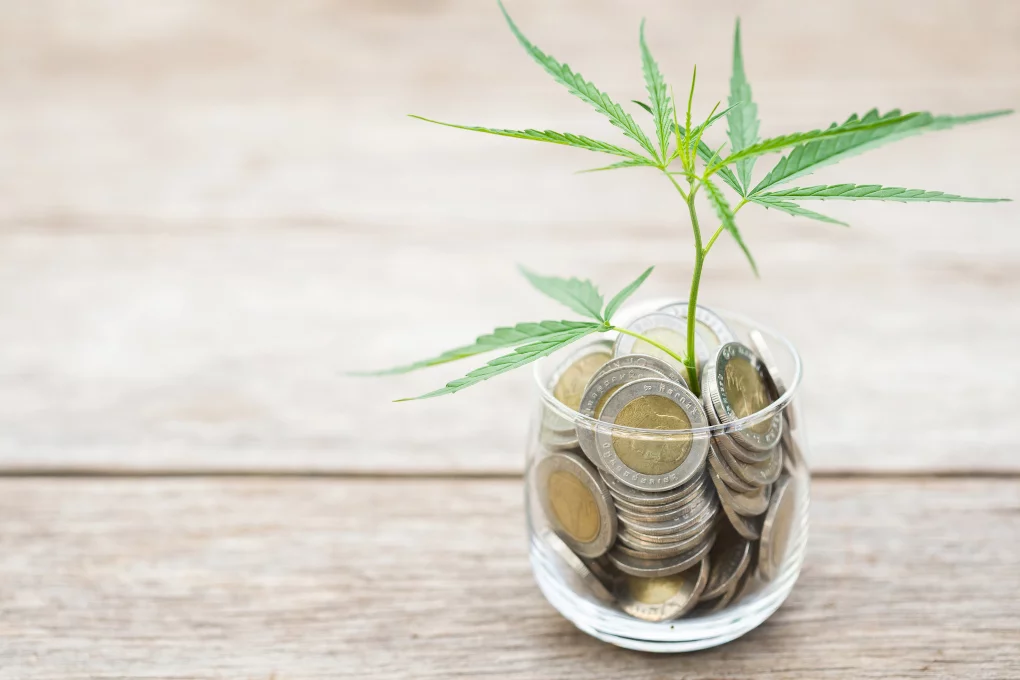South Africa’s economy faces high unemployment, sluggish growth, and an urgent need for new industries to drive investment and job creation. Traditional sectors like mining and manufacturing have declined, while agriculture, tourism, and renewable energy are emerging as key economic opportunities. In this landscape, the cannabis industry presents a multi-billion-rand potential, offering a mix of job creation, export revenue, and small-business development—but only if properly regulated and supported.
Globally, countries that have legalized cannabis for medical and recreational use are seeing significant economic benefits. Canada’s legal cannabis market generated over CAD 4.5 billion in 2022, while the U.S. state of California alone reported $5.3 billion in cannabis sales. In Africa, Lesotho and Zimbabwe have already tapped into the cannabis export market, attracting foreign investors and positioning themselves as suppliers of pharmaceutical-grade cannabis. South Africa, with its ideal growing conditions and established agricultural expertise, has the potential to become a leader in the global cannabis economy—but faces regulatory delays and financial barriers that prevent full-scale industry growth.
The Cannabis Economy: What’s at Stake?
As the global cannabis industry expands, South Africa stands at a crossroads, with the potential to become a major player in the market—or risk being left behind. The country has ideal growing conditions, a skilled agricultural workforce, and a rich history of cannabis cultivation, but regulatory roadblocks continue to limit its full economic potential. Understanding where South Africa fits into the global market and how its current industry operates is essential to unlocking the true value of cannabis for the economy.
The Global Cannabis Market and Where South Africa Fits In
The global cannabis industry is booming, with an estimated market value of $57 billion in 2023, expected to grow to over $100 billion by 2030. Countries that have legalized cannabis—like Canada, Germany, and parts of the U.S.—have seen massive job creation, increased tax revenue, and thriving cannabis export markets.
- Canada’s cannabis sector contributed over CAD 18 billion to its GDP since legalization in 2018.
- Germany’s move toward full legalization is expected to generate billions in tax revenue and reduce illicit market activity.
- The U.S. cannabis industry employs over 428,000 people, with states like California and Colorado leading in legal sales.
South Africa has several natural advantages that position it to compete in the global market:
- Perfect Climate for Outdoor Cultivation: Unlike Canada or Germany, which rely on expensive indoor grow operations, South Africa’s warm climate and fertile soil make it ideal for low-cost, large-scale outdoor cannabis farming.
- Affordable Agricultural Labor: South Africa has a large workforce skilled in farming, allowing for cost-effective production compared to high-wage countries.
- Established Cannabis Heritage: With centuries of cannabis cultivation in regions like the Eastern Cape and KwaZulu-Natal, South Africa already has the knowledge and expertise to develop a thriving legal industry.
However, without clearer regulations and investment incentives, the country risks falling behind while others capitalize on the booming cannabis economy.
South Africa’s Current Cannabis Market
Despite the high demand for legal cannabis, South Africa’s industry remains largely restricted, limiting its ability to generate jobs, exports, and tax revenue. The country has decriminalized private use and cultivation, but commercial sales and recreational dispensaries remain illegal outside of strict medical regulations. This legal uncertainty has led to missed economic opportunities while other African nations, like Lesotho and Zimbabwe, attract foreign investment into their cannabis sectors.
The National Cannabis Master Plan, introduced by the government, aims to unlock the industry’s potential by:
- Creating over 130,000 jobs through cannabis farming, processing, and retail.
- Developing an export-driven cannabis economy, targeting Europe and North America.
- Including rural and small-scale farmers in the industry’s growth to promote economic inclusivity.
However, challenges remain. Many small cannabis farmers still operate illegally, unable to afford SAHPRA’s strict licensing fees and compliance costs. While the informal cannabis trade supports thousands of rural livelihoods, its illegal status prevents farmers from accessing bank loans, insurance, and formal market opportunities.
If South Africa wants to compete globally, it must streamline its regulatory framework, reduce barriers to entry for small businesses, and create a clear path for both local and international investment in the cannabis sector.
Job Creation and Economic Opportunities
A fully legalized and regulated cannabis industry in South Africa could provide thousands of jobs, from agriculture and retail to manufacturing and medical research. With one of the highest unemployment rates in the world, particularly among youth and rural populations, cannabis presents a unique opportunity to create sustainable employment. However, barriers to entry, particularly for small-scale farmers and historically disadvantaged communities, must be addressed to ensure widespread economic benefits.
How Cannabis Could Create Thousands of Jobs
Legalizing cannabis would generate employment across the entire supply chain, including:
- Cultivation: Farmers, greenhouse workers, and irrigation specialists.
- Processing: Lab technicians, extraction specialists, and product developers.
- Retail & Distribution: Dispensary staff, delivery services, and marketing professionals.
- Logistics: Transport workers, supply chain coordinators, and compliance officers.
- Medical & Research: Scientists, pharmacists, and healthcare professionals working on cannabis-based treatments.
One of the most significant advantages of the cannabis industry is its ability to provide jobs for a wide range of skill levels. From entry-level farm laborers to highly skilled medical researchers, the industry has the potential to absorb workers from various backgrounds. In a country where youth unemployment exceeds 40%, legal cannabis could create much-needed opportunities in both urban and rural areas.
Rural Development and Small-Scale Growers
For decades, cannabis cultivation has been a source of income for rural communities, particularly in the Eastern Cape, KwaZulu-Natal, and Limpopo. However, most small-scale growers have been operating outside of the legal framework, making them vulnerable to law enforcement, exploitation, and market instability.
- Traditional cannabis farmers have the expertise but lack access to legal markets.
- Many face challenges in obtaining licenses due to high costs and bureaucratic red tape.
- A regulated industry could establish rural cannabis hubs, boosting local economies.
If legalization efforts focus on inclusion, small-scale growers could be brought into the formal economy through cooperatives, government grants, and training programs. This would allow them to sell legally, improve crop quality, and gain access to global markets—transforming historically poor communities into economic contributors.
Industrial Hemp and Non-Psychoactive Cannabis Markets
Beyond medical and recreational cannabis, industrial hemp represents a high-value, sustainable crop with applications in textiles, construction, bioplastics, and biofuels. South Africa has vast agricultural land that could be used to grow hemp for domestic use and international exports, positioning the country as a key player in the global hemp economy.
- Hemp textiles: An eco-friendly alternative to cotton and synthetic fabrics.
- Hempcrete: A lightweight, durable, and sustainable building material.
- Bioplastics & biofuels: A renewable alternative to petroleum-based products.
With global demand for sustainable materials increasing, industrial hemp could help revitalize South Africa’s agricultural sector while reducing reliance on traditional crops that are vulnerable to climate change. By expanding into non-psychoactive cannabis markets, South Africa could diversify its economy, creating new industries and employment opportunities that extend far beyond the cannabis plant itself.
Cannabis Exports
With ideal growing conditions, world-famous landrace strains, and a rapidly expanding global cannabis market, South Africa has the potential to become a leading exporter of medical cannabis, CBD, and industrial hemp. Countries like Germany, Australia, and the UK are increasing their imports of pharmaceutical-grade cannabis, while the demand for natural hemp products continues to grow worldwide. However, despite these opportunities, strict regulations, financial barriers, and export limitations have prevented South Africa from fully capitalizing on its cannabis export potential.
South Africa is home to some of the world’s most sought-after cannabis strains, including Durban Poison and Swazi Gold, which are prized for their unique genetics, high potency, and natural resilience. These strains have been used in global breeding programs to develop premium hybrid cannabis varieties, increasing their commercial value.
Beyond recreational cannabis, the international medical cannabis market is growing rapidly, with Europe and North America leading demand. South Africa has an opportunity to export pharmaceutical-grade cannabis and CBD extracts to countries with established medical markets, while also expanding into hemp-based textiles, bioplastics, and wellness products. With the right regulatory framework and investment, South Africa could secure its place as a major player in the global cannabis trade.
The Challenges of Exporting Cannabis Legally
Despite its strong agricultural advantage, South Africa faces significant challenges in entering the international cannabis market. One of the biggest obstacles is regulatory complexity, as cannabis exports must comply with both domestic guidelines and strict international quality standards. Meeting these standards requires expensive testing, security measures, and certification processes, which are often out of reach for small-scale farmers.
Compared to leading cannabis-exporting countries like Canada and Colombia, South Africa’s export licensing process is slow and costly, discouraging investment and delaying market entry. Additionally, logistical challenges, including customs clearance, shipping regulations, and fluctuating exchange rates, add another layer of difficulty for businesses looking to export cannabis legally. Without streamlined policies and better trade agreements, South Africa risks falling behind while other nations dominate the global cannabis supply chain.
Banking and Investments
A major challenge for cannabis businesses in South Africa is access to banking and investment capital. Due to international banking restrictions and the stigma surrounding cannabis, most traditional banks refuse to work with cannabis companies, leaving them without basic financial services like loans, payment processing, or investment funding. This forces businesses to rely on private funding, venture capital, or cash transactions, making it difficult to scale operations or invest in export infrastructure.
The lack of financial support slows down industry growth, particularly for local farmers and small businesses trying to enter the market. Potential solutions include alternative financing models, such as cannabis-specific investment funds, partnerships with international firms, and government-backed lending programs. By addressing these financial roadblocks, South Africa could unlock billions in potential revenue and establish itself as a global leader in cannabis exports.
The Tax Revenue Potential of a Legal Cannabis Industry
Legalizing and regulating cannabis in South Africa could unlock billions in tax revenue, providing a much-needed boost to the economy. Instead of allowing the black market to thrive untaxed, a structured taxation system could generate funds for public services, infrastructure, and job creation. Countries that have legalized cannabis—such as Canada, the U.S., and Germany—have already demonstrated how a regulated cannabis industry can contribute significantly to government revenue.
How Taxation Could Boost South Africa’s Economy
If South Africa were to fully legalize and tax cannabis, economists estimate that billions of rands could be collected annually. Based on international models, potential revenue could come from:
- Excise taxes on cannabis products, similar to those on alcohol and tobacco.
- Business licensing fees for dispensaries, cultivators, and manufacturers.
- Import/export duties on cannabis products traded internationally.
For comparison:
- Colorado (USA) collected over $2 billion in cannabis tax revenue since legalizing recreational cannabis in 2014.
- Canada’s cannabis tax revenue exceeded CAD 1 billion in just three years after legalization.
- Germany’s projected tax revenue from cannabis legalization could reach €4.7 billion annually.
By implementing a fair and competitive tax structure, South Africa could generate substantial funds without overburdening legal businesses—ensuring that the industry thrives while contributing to national development.
How Cannabis Could Fund Public Services
One of the biggest benefits of legalizing and taxing cannabis is the ability to reinvest revenue into critical public services, including:
- Healthcare: Funding hospitals, medical research, and mental health services.
- Education: Improving schools, funding scholarships, and expanding educational programs.
- Infrastructure: Building roads, upgrading public transport, and supporting rural electrification.
- Job Training Programs: Helping unemployed youth enter the formal workforce, particularly in cannabis-related fields.
In U.S. states like California and Illinois, cannabis tax revenue has been used to fund social equity programs, youth mentorship initiatives, and community development projects. South Africa could adopt a similar model, ensuring that historically disadvantaged communities benefit from cannabis legalization.
However, over-taxation could push consumers back to the black market, as seen in California, where excessive taxes led to continued illegal sales. Striking the right balance—where legal cannabis remains affordable, competitive, and beneficial to both businesses and the state—would be key to a successful cannabis tax policy.
The Cost of Keeping Cannabis Illegal
While legalization would bring substantial tax revenue, keeping cannabis illegal continues to drain government resources and blocks economic opportunities. The costs of prohibition include:
- Law enforcement expenses: Millions of rands are spent annually on policing, arrests, and court cases related to cannabis offenses.
- Lost business investments: Investors hesitate to fund cannabis businesses due to legal uncertainty, slowing down potential economic growth.
- Missed opportunities in tourism and trade: Cannabis-friendly tourism could attract international visitors, but current restrictions prevent South Africa from capitalizing on this growing market.
Legalization would shift law enforcement focus to more serious crimes, freeing up resources while allowing legitimate businesses to thrive under regulation. By keeping cannabis illegal, South Africa is not only losing tax revenue but also failing to tap into an industry that could transform its economy.
Barriers Preventing Cannabis from Becoming a Major Economic Driver
Despite huge economic potential, cannabis remains trapped in legal and bureaucratic uncertainty in South Africa. While other countries have rapidly moved toward full legalization and regulated markets, South Africa’s approach has been slow, restrictive, and unclear, preventing businesses and investors from fully committing to the industry. Challenges such as uncertain regulations, a thriving black market, and international trade restrictions continue to hold back what could be a billion-rand industry.
South Africa’s Slow and Confusing Legalization Process
The Cannabis for Private Purposes Act (CFPPA) was meant to provide a legal framework for cannabis use, but it falls short of full legalization by allowing private cultivation and consumption while still banning commercial sales. This creates a legal grey area, where cannabis is decriminalized but not accessible through licensed retail markets.
- Government hesitation: Authorities have been slow to embrace legalization, citing concerns about law enforcement, public health, and international drug treaties.
- Investor uncertainty: With unclear regulations, businesses are hesitant to invest in cannabis infrastructure, fearing policy reversals or legal complications.
- Missed opportunities: Countries like Germany and Thailand have moved quickly to establish cannabis markets, leaving South Africa falling behind despite its natural advantages.
Without clear policies that encourage investment and trade, South Africa risks being outpaced by global competitors, losing the chance to lead in African cannabis production and exports.
The Black Market vs. Legal Sales
Because legal sales remain restricted, the underground cannabis market continues to dominate, making it difficult for a regulated industry to emerge. South Africa has one of the largest illegal cannabis markets in the world, with growers, sellers, and distributors operating outside of government control.
- Widespread access: Despite being illegal, cannabis is readily available in townships, informal markets, and social networks, often at lower prices than regulated alternatives.
- Lack of incentives for informal traders: Many small-scale cannabis farmers have operated for decades without legal recognition. Without incentives like financial support or simplified licensing, they have little reason to enter the legal market.
- Risk of over-regulation: If legal cannabis is too expensive due to licensing fees, taxes, and compliance costs, consumers will continue buying from the black market, limiting tax revenue and industry growth.
To successfully transition to a legal cannabis economy, the government must find a way to integrate existing informal traders rather than push them out of the industry entirely.
International Trade Restrictions and Local Licensing Issues
Even as some businesses navigate local licensing hurdles, strict global trade laws make exporting cannabis difficult. South Africa has ideal growing conditions, but the country struggles to compete internationally due to regulatory and financial barriers.
- Complex licensing process: Obtaining SAHPRA-approved cultivation and export licenses is costly and time-consuming, making it difficult for small businesses to enter the market.
- International market access: Countries like Canada and the Netherlands dominate medical cannabis exports because of favorable trade policies, while South Africa faces export restrictions and diplomatic challenges.
- Red tape and policy stagnation: Government delays in clarifying cannabis trade policies prevent South Africa from securing trade agreements and foreign investments, slowing industry development.
Without streamlined licensing, government support, and international trade agreements, South Africa risks missing out on the booming global cannabis industry, leaving farmers and entrepreneurs locked out of a multi-billion-dollar market.
Local Sales and Online Delivery
As demand for legal cannabis grows, e-commerce and cannabis delivery services are emerging as key players in the market. While South Africa allows private cannabis use, the sale and distribution of cannabis remain illegal, making it difficult for regulated businesses to operate openly. Despite this, online platforms and discreet delivery services have begun offering cannabis products, some operating legally under medical cannabis regulations, while others exist in a legal grey area.
Regulating cannabis e-commerce could boost local market sales, create safer buying options, and generate tax revenue. Countries like Canada and the U.S. have successfully integrated licensed online dispensaries, allowing consumers to order cannabis legally with age verification and secure delivery systems. If South Africa introduced similar policies, it could curb black market sales, ensure quality control, and make legal cannabis more accessible to those who qualify under medical use regulations.
For an effective system, the government would need to establish clear licensing for online dispensaries, implement strict digital compliance measures, and work with trusted courier services to prevent underage sales or illegal distribution. By embracing a regulated e-commerce model, South Africa could unlock new revenue streams, expand access to legal cannabis, and modernize its approach to cannabis sales in an increasingly digital world.
What Needs to Happen for Cannabis to Become an Economic Game-Changer?
South Africa has all the ingredients for a thriving cannabis industry—ideal growing conditions, a strong agricultural workforce, and increasing global demand. However, legal uncertainty, financial barriers, and lack of industry support prevent it from reaching its full potential. To transform cannabis into a true economic driver, the government, investors, and businesses must work together to create a structured, inclusive, and well-regulated market.
For cannabis to become a legitimate and profitable industry, the government must take the lead in creating clear, efficient, and business-friendly regulations. Streamlining licensing processes, reducing bureaucratic delays, and implementing transparent policies would encourage businesses to invest with confidence. Additionally, funding cannabis research—from medical applications to industrial hemp, could drive innovation, attract international interest, and position South Africa as a leader in African cannabis production.
Beyond legislation, the government needs to create fair opportunities for small-scale farmers, particularly in historically disadvantaged rural areas. Providing funding, training, and infrastructure support would ensure that local growers benefit from legalization, rather than allowing corporate monopolies to dominate the market.
Encouraging Local and International Investment
For cannabis businesses to succeed, financial institutions and investors need incentives to support the industry. Currently, banking restrictions and investment hesitancy prevent cannabis entrepreneurs from accessing loans, insurance, and payment processing services. By introducing tax breaks, grant funding, and business development programs, the government could encourage both local and foreign investors to put their money into the industry.
Public-private partnerships could also play a role in developing large-scale cannabis projects, such as industrial hemp production for export or medical cannabis facilities supplying international markets. Countries like Germany, Israel, and Australia are already sourcing cannabis from Africa and Latin America, proving there is a lucrative global market waiting to be tapped.
A successful cannabis industry relies on both responsible consumers and knowledgeable entrepreneurs. Many South Africans still don’t fully understand cannabis laws, leading to confusion about what’s legal, what’s not, and where to buy regulated products. Public awareness campaigns could help consumers navigate the legal market, reducing demand for black-market sales while promoting safe and informed cannabis use.
For small-scale farmers and new business owners, training programs and legal guidance are essential to help them transition from informal trade to fully licensed operations. If South Africa wants to build a fair and sustainable cannabis economy, it must ensure that all players, from rural growers to urban entrepreneurs—have access to the tools and knowledge they need to succeed. With the right strategy, cannabis could become one of the country’s most valuable industries, driving economic growth for decades to come.



